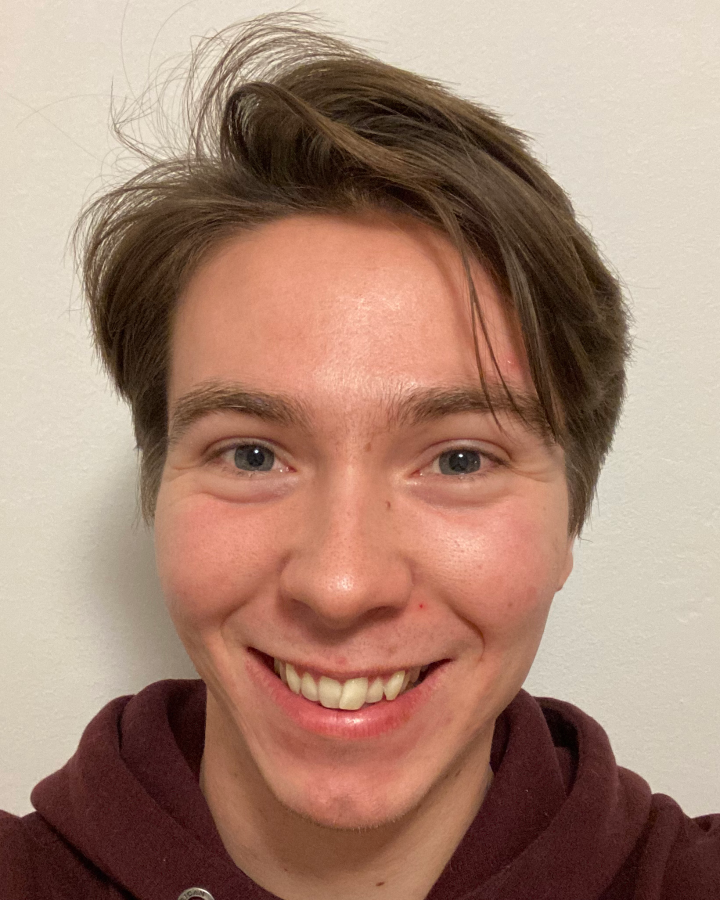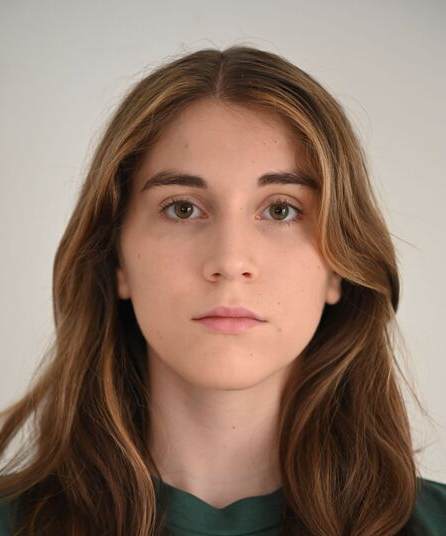Gerti Kappel
O.Univ.Prof.in Dipl.-Ing.in
Mag.a Dr.in techn.
Gerti Kappel
- Email: gertrude.kappel@tuwien.ac.at
- Phone: +43-1-58801-18870
- Office: HC0215 (1040 Wien, Favoritenstrasse 9)
- About:
Gerti Kappel is full professor at the Institute of Information Systems Engineering at TU Wien, chairing the Business Informatics Group. Prior to that, from 1993 to 2001, she was a full professor of computer science (database systems) and head of the Department of Information Systems at the Johannes Kepler University Linz.
From 2016 to 2019, she was a member of the dean’s team of the Faculty of Informatics responsible for research, diversity, and financial affairs. Since the beginning of 2020 she acts as the dean of the Faculty of Informatics at TU Wien.
Her current research interests include Model Engineering, Web Engineering, and Process Engineering, with a special emphasis on cyber-physical production systems. Striving for the unity of research and teaching, she co-authored and co-edited among others „UML@Work“ (dpunkt.verlag, 3rd ed, 2005), „UML@Classroom“ (Springer, 2015), and „Web Engineering“ (Wiley, 2006).
- Orcid: 0000-0002-4758-9436
- Keywords: Process Engineering, Data Engineering, Services Engineering, UML and XML, Business Process Management (BPM), Model Engineering, Workflow Management Systems (WFMS), Web Engineering, Object Orientation, Software Engineering
- Roles: Head of Services, Full Professor
Publications
Keywords: Model transformation, CPN, Verification
Astract: Model-Driven Engineering (MDE) places models in the center of the software lifecycle. Model transformations play a vital role in this context whereas several model transformation languages and types of model transformations are available. This diploma theseis only addressed the issue of the model-to-model transformation (M2M). All this languages or approaches have the problem that they are not easy to understand respectively irreproducible. This makes them hard to debug and to analyse. This problem excites from the execution of the transformation in the form of a black-box which hides the operational sematic.
Therefore there are only marginal informations about the transformation process. A comprehensive analysis is important because errors in model transformations can appear on various points for instance on the source and target metamodel, source and target model and on the transformation logic. All this has a direct consequence to the correctness of the transformation and all following steps in the software lifecycle. The main problem of the MDE is currently the so far only unsatisfying answered question of analysing model transformations.
This diploma thesis pickes up the described problems in the analysis of model transformations and tries on the basis of transformation nets to go into detail of the veri cation. The transformation net formalism is based on coloured petri nets which offer a set of analysis methods. This thesis explores if the mentioned analysis methodes can be applied after the reduction of transformation nets to coloured petri nets and in which kind transformation net speci fics have an impact on this process. Beyond that this thesis investigates the support of widespread and already in industrial environment used tools for coloured petri nets. As a final step the already existing "Transformations On Petri Nets In Color" prototype for transformation nets gets extended to support analytical properties for model transformations.
Pessenlehner, M. (2010). Modelltransformationsanalyse basierend auf Petri Netzen [Diploma Thesis, Technische Universität Wien]. reposiTUm. http://hdl.handle.net/20.500.12708/159770
How to efficiently collaborate in model versioning : a guideline to reduce and resolve conflicts
 Melanie Kapellner
Melanie Kapellner Martina Seidl
Martina Seidl Petra Brosch
Petra BroschKeywords: model versioning, model-driven development, collaboration, conflict resolution
Astract: The advances in software development lead to ever increasing complexity of software systems.
Therewith rises the demand for technologies and techniques to shield the developers from that system complexity. For decades researchers and practioners have created abstractions to that end. Early programming languages shielded the programmers from the complexity of programming with machine code. Continuously, new programming languages and environments emerged and still emerge. At the moment, model-driven development, the next abstraction level, is on the rise, leveraging models to central artefacts of software development.
Nowadays, software is developed in teams. Models provide the advantage to be additionally used as an inter-expert language, hence facilitating communication. Consequently, a model is often edited by multiple persons. Version control provides collaborative support on a technical level by enabling concurrent work. In version control, mechanisms are refined to improve software development in teams. Current versioning tools, however, mainly provide support for code-centric software engineering. Versioning of models still faces major challenges. Models may not be as easily divided into parts and partitioned for several developers to work on as source code is. Due to parallel development, the versioning of models is especially prone to conflicts. The resolution of conflict situations is a precarious and preferably collaborative process. Progress in model-driven development research seems to be restricted to the technical level, while social aspects like human behaviour and cooperation are often neglected. This is surprising, since software developers spend more than 60% of their time with collaborative activities, including meetings and other communication, coordination of tasks, and collaboratively executing these tasks. Well working collaboration in a team leads to an overall better outcome. It is therefore important to actively shape collaboration to gain the huge potential benefits achieved through efficient teamwork.
This thesis provides a general survey on possibilities to improve the model-driven development process in regard to collaborative aspects. We therefore analyse means and methods of collaboration in theory and practice, both in software engineering and various other fields. We highlight the importance of attaching a greater value to collaboration in research and in practice. Since collaboration is especially finical in conflict situations, we provide a specific example for enhanced collaboration in conflict resolution in model versioning.
Kapellner, M. (2010). How to efficiently collaborate in model versioning : a guideline to reduce and resolve conflicts [Diploma Thesis, Technische Universität Wien]. reposiTUm. http://hdl.handle.net/20.500.12708/161389
Catch Me If You Can - Debugging Support for Model Transformations
 Johannes Schoenboeck
Johannes Schoenboeck Angelika Kusel
Angelika Kusel Werner Retschitzegger
Werner Retschitzegger Wieland Schwinger
Wieland Schwinger Manuel Wimmer
Manuel WimmerKeywords:
Astract: Model-Driven Engineering places models as first-class artifacts throughout the software lifecycle requiring the availability of proper transformation languages. Although numerous approaches are available, they lack convenient facilities for supporting debugging and understanding of the transformation logic. This is because execution engines operate on a low level of abstraction, hide the operational semantics of a transformation, scatter metamodels, models, transformation logic, and trace information across different artifacts, and provide limited verification support. To tackle these problems, we propose a Domain-Specific Language (DSL) on top of Colored Petri Nets (CPNs)-called Transformation Nets-for the execution and debugging of model transformations on a high level of abstraction. This formalism makes the afore hidden operational semantics explicit by providing a runtime model in terms of places, transitions and tokens, integrating all artifacts involved into a homogenous view. Moreover, the formal underpinnings of CPNs enable comprehensive verification of model transformations.
Schoenboeck, J., Kappel, G., Kusel, A., Retschitzegger, W., Schwinger, W., & Wimmer, M. (2010). Catch Me If You Can - Debugging Support for Model Transformations. In Models in Software Engineering (pp. 5–20). Springer. https://doi.org/10.1007/978-3-642-12261-3_2
Benatallah, B., Casati, F., Kappel, G., & Rossi, G. (Eds.). (2010). Web Engineering. Springer LNCS. https://doi.org/10.1007/978-3-642-13911-6
Adaptable Model Versioning in Action
 Petra Kaufmann
Petra Kaufmann Martina Seidl
Martina Seidl Konrad Wieland
Konrad Wieland Manuel Wimmer
Manuel Wimmer Horst Kargl
Horst Kargl Philip Langer
Philip LangerKeywords:
Astract: In optimistic versioning, multiple developers are allowed to modify an artifact at the same time. On the one hand this approach increases productivity as the development process is never stalled due to locks on an artifact. On the other hand conflicts may arise when it comes to merging the different modifications into one consolidated version.
In general, the resolution of such conflicts is not only cumbersome, but also error-prone.
Especially if the artifacts under version control are models, little support is provided by standard versioning systems.
In this paper we present the enhanced versioning process of the model versioning system AMOR. We show how AMOR is configured in order to obtain a precise conflict report which allows the recommendation of automatically executable resolution patterns. The user of AMOR chooses either one of the recommendations or performs manual resolution. The manual resolution may be in collaboration with other developers and allows to infer new resolution patterns which may be applied in similar situations.
Kaufmann, P., Kappel, G., Seidl, M., Wieland, K., Wimmer, M., Kargl, H., & Langer, P. (2010). Adaptable Model Versioning in Action. In Modellierung 2010 (pp. 221–236). GI. http://hdl.handle.net/20.500.12708/53107
Teaching
Project in Computer Science 1
Semester: 2025S; Nr: 194.145; Type: PR; Hours: 4.0; Language: if required in English; View on TISSSeminar for Master Students in Business Informatics
Semester: 2024W; Nr: 180.779; Type: SE; Hours: 1.0; Language: English; View on TISSResearch Seminar
Semester: 2024W; Nr: 188.446; Type: SE; Hours: 2.0; Language: if required in English; View on TISSLiterature Seminar for PhD Students
Semester: 2024W; Nr: 188.512; Type: SE; Hours: 2.0; Language: German; View on TISSModel Engineering
Semester: 2024W; Nr: 188.923; Type: VU; Hours: 4.0; Language: English; View on TISSBachelor Thesis for Informatics and Business Informatics
Semester: 2024W; Nr: 188.926; Type: PR; Hours: 5.0; Language: if required in English; View on TISSScientific Research and Writing
Semester: 2024W; Nr: 193.052; Type: SE; Hours: 2.0; Language: German; View on TISSProject in Computer Science 1
Semester: 2024W; Nr: 194.145; Type: PR; Hours: 4.0; Language: if required in English; View on TISSSustainability in Computer Science
Semester: 2024W; Nr: 194.155; Type: VU; Hours: 2.0; Language: English; View on TISSProjects
Digitale Kompetenzen @ Parlament
Name: DKP; Title: Digitale Kompetenzen @ Parlament; Begins On: 2021-04-01; Ends On: 2021-09-30; Context: Parlamentsdirektion; View Project WebsiteIFC-Roundtrip und Plangrafiken
Name: IFC-Roundtrip und Plangrafiken; Title: IFC-Roundtrip und Plangrafiken; Begins On: 2019-01-01; Ends On: 2020-06-30; Context: tbw solutions ZT GesmbH; View Project WebsiteVienna Informatics Living Lab
Name: Vienna Informatics Living Lab; Title: Vienna Informatics Living Lab; Begins On: 2018-08-01; Ends On: 2019-07-31; Context: Vienna Business Agency (WAW); View Project WebsiteMulti-Paradigm Modelling for Cyber-Physical Systems (MPM4CPS)
Name: MPM4CPS; Title: Multi-Paradigm Modelling for Cyber-Physical Systems (MPM4CPS); Begins On: 2014-10-01; Ends On: 2019-05-31; Context: European Cooperation in Science and Technology (COST); View Project WebsiteCOSIMO: Collaborative Configuration Systems Integration and Modeling
Name: COSIMO; Title: COSIMO: Collaborative Configuration Systems Integration and Modeling; Begins On: 2014-01-01; Ends On: 2017-05-30; Context: Vienna Business Agency (WAW); View Project WebsiteARTIST: Advanced software-based seRvice provisioning and migraTIon of legacy Software
Name: ARTIST; Title: ARTIST: Advanced software-based seRvice provisioning and migraTIon of legacy Software; Begins On: 2012-10-01; Ends On: 2015-09-30; Context: European Commission; View Project WebsiteDARWIN - Model-driven Development and Evolution of Semantic Infrastructures
Name: DARWIN; Title: DARWIN - Model-driven Development and Evolution of Semantic Infrastructures; Begins On: 2012-03-01; Ends On: 2015-02-28; Context: Austrian Research Promotion Agency (FFG); View Project WebsiteTROPIC: A Framework for Model Transformations on Petri Nets in Color
Name: TROPIC; Title: TROPIC: A Framework for Model Transformations on Petri Nets in Color; Begins On: 2009-03-01; Ends On: 2012-08-31; Context: Austrian Science Fund (FWF); View Project WebsiteAMOR: Adaptable Model Versioning
Name: AMOR; Title: AMOR: Adaptable Model Versioning; Begins On: 2009-02-01; Ends On: 2011-09-30; Context: SparxSystems Software GmbH; View Project WebsiteDevelopment of a WEB-based database for the global administration of CAN-Data
Name: Rosenbauer-DB; Title: Development of a WEB-based database for the global administration of CAN-Data; Begins On: 2008-09-01; Ends On: 2009-04-30; Context: Rosenbauer; View Project WebsiteModel-Driven Web Engineering net
Name: MDWEnet; Title: Model-Driven Web Engineering net; Begins On: 2006-12-01; Ends On: 2010-12-31; Context: Johannes Kepler Universität Linz; View Project WebsiteTRACK and TRADE: Creating a Data Mart for Floating Car Data
Name: TRACK™ Title: TRACK and TRADE: Creating a Data Mart for Floating Car Data; Begins On: 2006-10-01; Ends On: 2008-09-30; Context: European Commission; View Project WebsiteModelCVS: A Semantic Infrastructure for Model-based Tool Integration
Name: ModelCVS; Title: ModelCVS: A Semantic Infrastructure for Model-based Tool Integration; Begins On: 2006-01-01; Ends On: 2007-12-31; Context: ARIKAN Productivity Group GesmbH; View Project WebsiteZELESSA: An Enabler for Real-time Business Intelligence
Name: ZELESSA; Title: ZELESSA: An Enabler for Real-time Business Intelligence; Begins On: 2006-01-01; Ends On: 2007-06-30; Context: Österr. Nationalbibliothek; View Project WebsiteAdmina.at goes Austria
Name: Admina.at; Title: Admina.at goes Austria; Begins On: 2005-12-01; Ends On: 2007-09-30; Context: Federal Ministry of Science and Research (bm:wf); View Project WebsiteWomen's Postgraduate College for Internet Technologies
Name: WIT; Title: Women's Postgraduate College for Internet Technologies; Begins On: 2003-01-01; Ends On: 2007-12-31; Context: European Commission; View Project WebsiteTeam
Business Informatics Group, TU Wien
Professors
Christian Huemer
Ao.Univ.Prof. Mag.rer.soc.oec.Dr.rer.soc.oec.
Dominik Bork
Associate Prof. Dipl.-Wirtsch.Inf.Univ.Dr.rer.pol.
Gerti Kappel
O.Univ.Prof.in Dipl.-Ing.inMag.a Dr.in techn.
Henderik Proper
Univ.Prof. PhDResearchers
Aleksandar Gavric
Univ.Ass. MEng. B.Eng.
Galina Paskaleva
Projektass.in Dipl.-Ing.inDipl.-Ing.in BSc

Marianne Schnellmann
Univ.Ass.in BSc MScMarion Murzek
Senior Lecturer Mag.a rer.soc.oec.Dr.in rer.soc.oec.
Marion Scholz
Senior Lecturer Dipl.-Ing.inMag.a rer.soc.oec.
Miki Zehetner
Univ.Ass. DI Bakk.rer.soc.oec. MScSyed Juned Ali
Univ.Ass. BSc MScStudent-Staff

Florian Fankhauser
Projektass. Dipl.-Ing.Julia Smejkal
BSc






